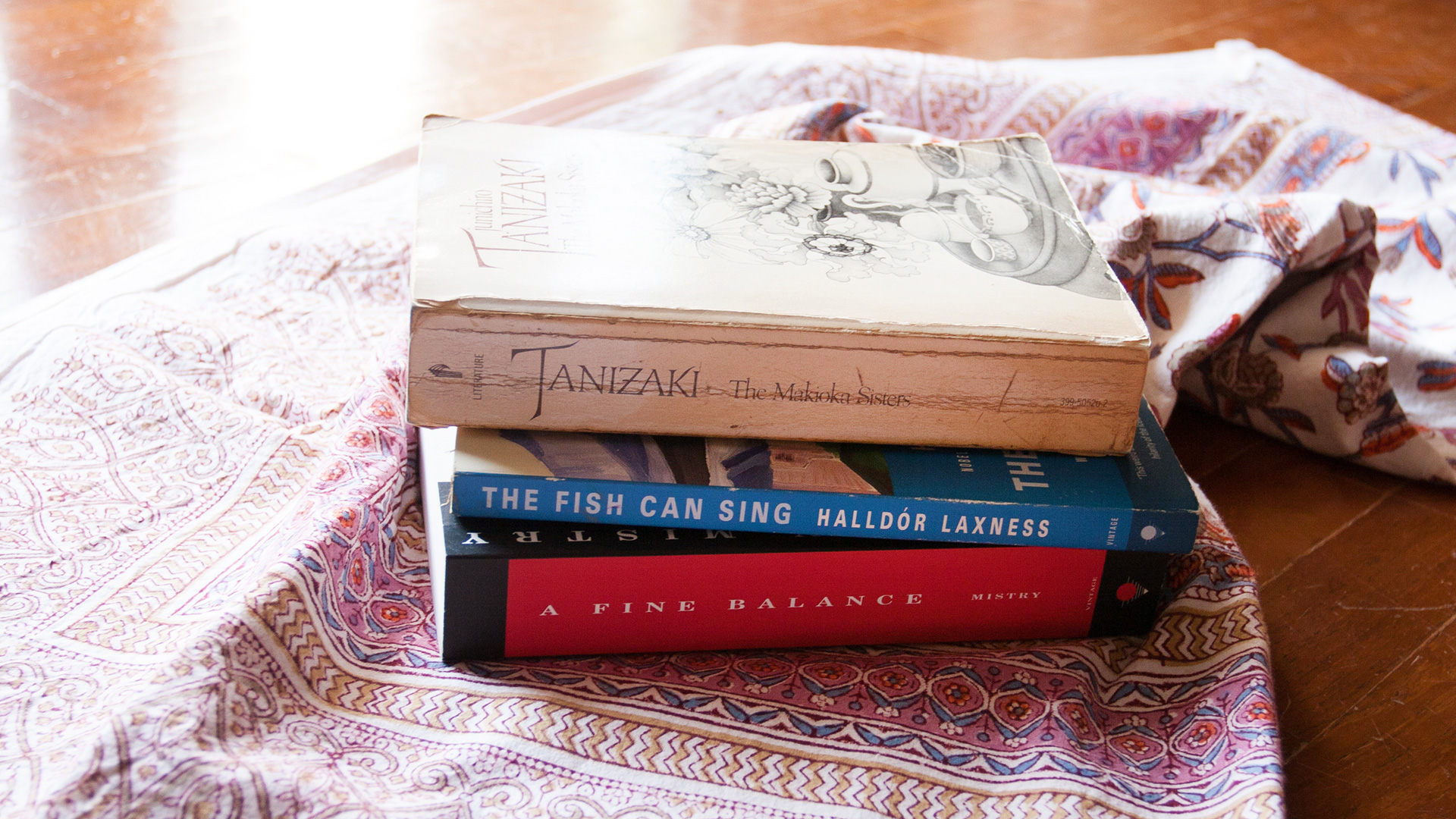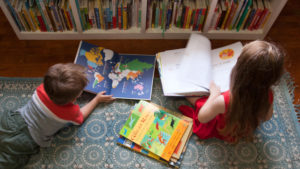
On the first day of my high school English class, the teacher put a large, decorated, tin can on a stool in the middle of the room. He opened the conversation by asking each student to tell what he or she saw when looking at the can. He asked someone to stand up and describe the can. He asked another person to sit on the floor and describe it, and yet another to share what she saw when standing on a chair.
As you can guess, each student had a perspective no one else did. And, not surprisingly, the people sitting closest to one another saw the can in similar ways. On the other hand, people farthest apart didn’t even see the items that someone across the room observed were there. The lesson was a metaphor for the differences in our perception of the world when we’re separated by geographic and cultural distance.
Moving beyond Stereotypes toward Love
The teacher prompted us with questions. How could we better understand someone else’s worldview? Which of us would take the first step toward that understanding? He sent one student across the room and asked if she could better see what people on that side of the room had described on the can. Yes, she could. She was now standing in their shoes, so to speak. Our discussion that day increased my appreciation for the importance of empathy, understanding, and compassion in relationships.
“Books stir our hearts to approach relationships that cross geographic and cultural boundaries with compassion and love.”
The teacher spent the rest of the year leading us through discussions of a variety of books, essays, and poems. He already knew what we began to realize in his class—that reading is an important way of listening to and understanding the world.
God used the reading we did that year to give me a deeper understanding of our diverse world. I learned that a person’s racial, social, and cultural context informs their impressions about life. I saw that the world often promotes prejudice and half-truths about people, events, and circumstances. And I discerned that cultivating empathy is crucial for understanding someone who is different from me. As a Christian, I have an obligation to love my neighbor as myself. I need to emulate Christ by taking the first step toward others. Sometimes the first step is diving into a book.
Reading is one small way to move beyond stereotypes and misperceptions of entire groups of people, and come to a deeper understanding of individuals and their particular cultural situations. Books inform our understanding of why people from another culture may think the way they do or may act in a way unfamiliar to us. Books stir our hearts to approach relationships that cross geographic and cultural boundaries with compassion and love.
Compassion for the Sake of the Gospel
Cultivating compassion is important if we hope to reach people with the gospel. Paul urges us to imitate him, as he imitates Christ, in becoming all things to all men so that some might be saved (1 Cor. 10:31–33; 11:1). We must strive to follow his example. To seek the good of others and to avoid becoming stumbling blocks to the gospel, we must first understand the culture in which people live if we hope to communicate truth and not our own cultural traditions. Reading for the purpose of cultural understanding for the sake of the gospel is a way of loving.
For working adults, the advent of summer doesn’t usually bring the freedom it did when we were children, but most of us still try to take a break from the daily grind. This summer, when you pick up a book to carry to the pool, the beach, or the mountains, consider one that expands your understanding of the nations. Here are three novels that will introduce you to the rhythms of another culture. Each of these books challenged my perceptions of the countries where they take place and helped me empathize with the people living there. They have even shaped my prayers for the nations.
3 Novels That Will Help You Cultivate Compassion This Summer
- A Fine Balance by Rohinton Mistry
The very beginning of this book warns its content is so tragic that when you finish you won’t believe it’s true, and yet it is. The story takes place in India, in an unnamed city by the sea, where four people develop an improbable friendship. The main characters come from different castes, and the story provides a careful look at the tension that permeates everyday life within this hierarchical social system. My heart broke, began to mend, and broke again as I came to care for and root for these characters. The story reinforced a deep conviction that the only answer to our inherent spiritual corruption is Jesus. - The Fish Can Sing by Halldor Laxness
An orphan named Alfgrimur is taken in by an elderly couple and raised in a village on the outskirts of Reykjavik, Iceland. As he grows up, his country experiences cultural tension as old ways of life fade away and modernization comes rushing in. The story paints a beautiful portrait of how individuals, in their everyday lives, influence and shape the spirit of a country. I came away with the impression and reminder that even the simplest acts can impact the people around us, for better or worse. - The Makioka Sisters by Junichiro Tanizaki
A quiet and unhurried story of four Japanese sisters, just before the start of World War II. This book is an intimate glimpse into Japanese culture, and as I read the story of the sisters, I realized again just how attentive we must be to truly understand all the nuances that make up a culture. I particularly enjoyed the short vignettes within the bigger story that illustrated the friendships between two families from very different countries.
I hope you’ll find compassion for others stirred and your love for the nations renewed this summer. I pray you will take a loving, first step toward someone in your community who comes from a different country or culture. May those you love find home in Christ.
Editor’s Note: A Fine Balance is not suitable for young readers. It contains several graphic and painful depictions of sex and suffering. The scenes reflect the sin and brokenness in the world and reinforce our belief that, as Christians, our only hope of overcoming corruption and death lies in Christ’s perfect sacrifice on the cross that brought us reconciliation with God.


